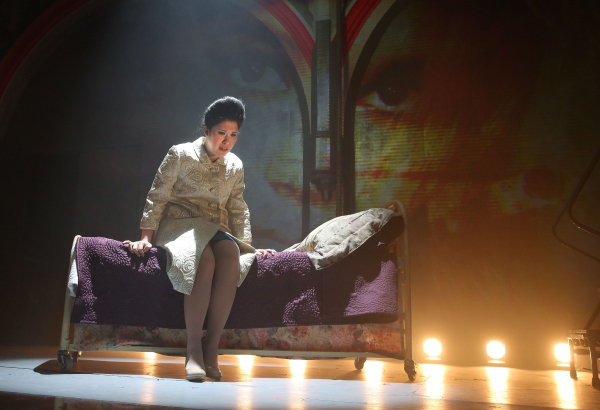Staying Power and the Power to Leave
Why shows can be — but shouldn’t be — walked out of.
My reflections on theatrical turkeydom in last month's Thinking About Theater had already started me recalling shows I'd walked out of, over the decades. And just when an article entitled "Confessions of a Broadway Bolter" appeared, occasioning a lot of online discussion. In it, an entertainment reporter admitted to having seen only the first act of a great many shows she was covering. The controversy peaked with a stinging reply from a theater publicist in which he complained, with some justification, about the waste of thousands of dollars in free tickets lavished on a person who treated them so cavalierly.
The author seems to have made a pretty extensive habit of leaving Broadway shows early, and the range of her mid-work departures was wide, encompassing musicals, dramas and comedies, homegrown work and prestigious imports alike, with zero regard for star power, degree of significance, or popularity. She notes virtuously that she stayed, enraptured, all through two exceptionally lengthy works, both of which I happen to regard as pretty paltry (though I stayed through both of them too), and boasts proudly of having remained on her feet through two entire performances of Here Lies Love (which I also enjoyed, though from a sitting position above the action).

(© Joan Marcus)
Except in cases of emergency, walking out midway through a performance inevitably constitutes a comment on the show: "I've seen enough of this," it says; "I need see no more." A paying customer, for whom the act of exiting at midpoint is the simplest and most direct way to express a negative opinion, might have many reasons for it: The dialogue is boring, the story is predictable, the lead actors are miscast, the director has no clue about how to handle the material, the production is too ugly or too dull or too loud.
Some plays can leave you blankly uncomprehending; others lay out material you already know only too well. Horrible sights and ferocious language repel some theatergoers; others are put off by blandness, gentility, and quietude. The connection between an audience and a play is a kind of marriage, and we know from the divorce statistics that not all marriages work out. When the patrons in the cheap seats booed a play by Henry James, G.B. Shaw defended James in his review by saying, "His plays are du théâtre [i.e, "theatrical"] when the right people are in the theatre." Marketing exists not only to make a show as widely known as possible but to make sure it's known to the audience that will enjoy it rather than to those who won't.
Those whom the management honors with free tickets are in a more equivocal position. As invited guests, they generally shouldn't reward their hosts by walking out, any more than they would by booing or throwing things at the stage. And generally they know better than to be so rude. Producers habitually "paper" press nights with members of the theater community, and I sometimes avoid attending on press nights because the willed overenthusiasm of these folks, anxious to show their gratitude by shrieking and stomping after every number or big scene, makes me cringe a little. They mean well, bless them, but experience teaches the press corps to discount their frenzies. Our pleasure comes, if at all, when they react unpredictably — roaring for a non-star actor in a secondary role who unexpectedly turns out to be the hit of the show, or responding to the end of an unachieved or unsatisfactory work with the perfunctory and quick-dying applause that signifies mixed feelings.
Producers may not relish such reactions, but there's little to be done about them. Theater audiences, like all crowds, are fickle, and being on the free list, like theatergoing itself, can become a habit, making the regular recipients of comps forget whom they're beholden to and what they were supposed to be doing there. Instead they behave like — well, like an audience seeing a show, reacting truthfully rather than cheering on cue like a paid claque. All a producer can do is swallow hard, try to keep the number of freebies down, and hope for the best.
For the press, the situation is more complex. When your job involves going to the theater, day in and day out, the schedule rules your life. The automatic obligation becomes so overpowering that it takes effort to remember why you do it, and what made theater so important to you that you chose this strange profession. Habit, as Beckett said, "is the great deadener." To me the story of the "Broadway Bolter" describes a colleague who, unluckily for her, has forgotten the basic why and what of her occupation, or perhaps has thought of them so superficially that she didn't realize the extent to which she was trivializing her job, which is not to have fun at the theater (though I'm glad there were shows she enjoyed) but to observe what goes on in it and how its patrons respond.
Thinking back, as I said at the top of this essay, I could only recall around half a dozen occasions on which I had left a show at intermission in the last four decades. I'll talk about those, and some other famous early exits, next week.
Stay tuned to TheaterMania for part II of this "Thinking About Theater" column, which will appear on Friday, December 19.








